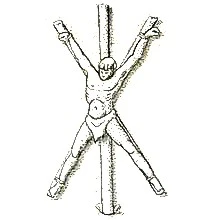How was work before and how do we want it to be?
Our history marks us, but how it continues depends on us. I invite you to reflect on how work used to be, how it has evolved, how we see it now, and how we want it to be.

Podés leer este post en español aquí.
WORK AS A PUNISHMENT
Did you know that in the past, working was considered a punishment? According to the RAE, the etymology of the word "trabajar" (to work in Spanish) comes from the vulgar Latin "tripaliare," which means to torture [1]. The “tripalium” was a torture device made up of three stakes. It was a yoke with three points that, before being used to punish slaves, was used to hold horses or oxen to shoe or evaluate them.

The practice of slavery dates back to prehistory; all ancient peoples used slavery. It was an accepted situation and, in those times, essential both economically and socially. A person became the property of another by merely being the child of slaves, incurring debts and not being able to pay them, committing a crime, or being a prisoner of war (conquering a territory meant conquering people).
All physical effort was a punishment, so working, as it involved a physical commitment, was seen negatively. Therefore, work was initially designated for slaves.

RELIGIONS AND THE CONCEPT OF WORK
The conception of the concept of work and its evolution had a lot to do with the various existing religions.
In the most influential sacred book of Christianity, the Bible, work is mentioned with a certain negative connotation, as if it were an effort that implies some suffering:
By the sweat of your brow you will eat your food until you return to the ground, since from it you were taken; for dust you are and to dust you will return [2].
The Bible also introduced the idea of the importance of rest for work:
Six days you shall labor and do all your work, but the seventh day is a sabbath... [3]
This religious conception of work, where certain labor rights began to be visualized, continued to evolve and become embedded in civilization.
Another example where religion generated an advance in the world of work was with the oral tradition of Judaism, the Talmud. In the treatise on principles, a literary element that is part of the Talmud, ‘work’ is spoken of as a blessing and a fundamental part of every human being, even for those who do not need it to live:
In all the works you do, if you work, you will be blessed; if not, you will not be blessed [4].
It establishes that those who already have enough to live on must also work because work is not an individual good but serves the well-being of the whole. This same principle that names work with appreciation ("...love work, hate lordship, and do not seek intimacy with those who command"), also mentions subordination and the domination of some over others as negative aspects of society:
Stay away from pride and honors, do not seek to dominate people because community leadership buries its leaders [5].
Just as Christianity and Judaism address issues of labor rights and influence how work is thought of, other religions have also done so over time.
EVOLUTION OF WORK IN DIFFERENT CIVILIZATIONS
ANCIENT GREECE
In ancient Greece, it was considered that there were two types of activities:
- Servile, which deformed the body and took away all work and elevation from thought;
- Free and leisurely.
For Greek civilization, liberal activities ensured pleasure, well-being, and happiness because those were the goods achieved not by those who worked but by those who lived at ease.
Work, at that time, was highly devalued and considered a limit to freedom, as there was no creation in it. It was an activity imposed by the need for subsistence, so in Hellas, it was the slaves who did it. However, they did not do it as a punishment towards them, but because it was not a desirable activity to do.
FEUDALISM
During feudalism, although servitude still existed, the concept of work changed: work was not a punishment but a kind of exchange where the slaves worked the land, and the lord who ruled the fief granted them protection: a place to live and allowed them to use the land they cultivated. Vassals were not entirely free; they were still at the disposal of and owed total gratitude to their master, but they did not live or work under the conditions they used to.

CRAFTSMEN AND PROGRESS IN WORK
In the 12th century, a new form of work began to emerge where progress was possible, an evolutionary organization. Being born in a certain social stratum did not mean having to die on that scale; one could prosper. A clear example of this hierarchical regime was the craftsmen, who had three social levels: apprentices, companions, and masters. The apprentice was the one who had to dedicate himself to learning the trade. Being an apprentice meant being at the lowest level in the social scale for craftsmen, but with years of learning, an apprentice could move up to the second level of the scale: being a companion. Companions were the real workers who, after a few years, could become masters. Masters were those who had disciples and taught the trade.
WORK TODAY
Although there are still people who work to survive, to earn their daily bread, work is seen as an activity that people do to access another reality. We work with the goal of self-realization, to fulfill our desires and be happy. As Marx said, work is a self-creating activity that allows people to project their essence, to express their humanity.
However, it is concerning how today's work still has a negative tint. Currently, the RAE provides eighteen definitions of the word work, among them are these concepts: suffering, effort, mortify, distress, unsettle, harm, and to cause harm.
Is the old “tripalium” still lurking?
HOW WE WANT WORK TO BE AT 10PINES
At 10Pines, we want work to be seen as a social contract, based on freedom, that allows us to connect better. We want work not to be a burden that we have to carry every day, but something that we enjoy doing. We want it to be seen as a learning process where all voices are heard. We want the old “tripalium" to finally end.

WHAT WE DO TO CHANGE THE WAY WE THINK ABOUT OUR WORKS?
From my experience, at 10Pines, the paradigm is tried to be changed from the trust among us. Freedom prevails but comes with personal responsibility: although there is no boss who commands, each one has a commitment to themselves and to others. Everything is based on camaraderie, solidarity, consideration, and, of course, respect.
It is truly important that everything can be discussed and those who wish to do so are heard. At 10Pines, everyone can express their ideas freely, as long as it is done with respect. Anyone who does so will be listened to attentively.

I truly believe that 10Pines encourages seeing work from another perspective, without a negative tint. As mentioned in the book "Learning from the Best":
You cannot discover new worlds with old eyes. For some things to come in, others have to go out to make room. It's the law of life. [...] In your look (attitude) is the key.
Based on the book "The Future of Work and the Work of the Future" by Alejandro Melamed.
